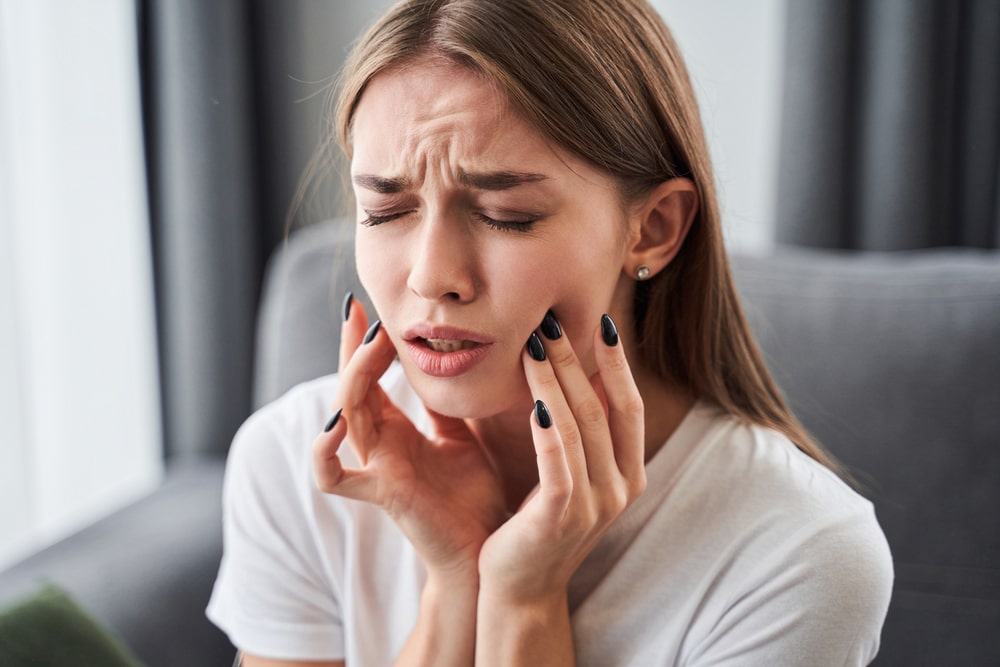Imagine this: you’re enjoying a quiet evening in Brampton when suddenly, a searing toothache strikes, or you bite into something hard and feel a dreaded crack. Panic sets in. Beyond the pain, a common fear surfaces almost immediately: “What if I need immediate dental care, but I don’t have the money to pay upfront?” It’s a stressful scenario, one that far too many people face. The good news? Facing a dental emergency in Brampton doesn’t automatically mean you’re out of options if immediate payment is a concern. In fact, many solutions and pathways exist to help you get the urgent care you need without adding financial strain to an already painful situation.
This guide is designed to empower you with practical advice, demystify payment options, and help you navigate the process of securing emergency dental care in Brampton, even when upfront payment isn’t feasible. You’re not alone, and understanding your choices can make all the difference.
Understanding Your Emergency: What Needs Immediate Attention?
Before we dive into payment solutions, let’s clarify what truly constitutes a dental emergency. Knowing the difference can save you time, stress, and potentially, money.
A dental emergency is typically a situation that:
- Causes severe pain: Pain that is constant, throbbing, or interferes with daily activities.
- Involves trauma: A knocked-out tooth, fractured tooth, or injury to the gums or jaw.
- Results in uncontrolled bleeding: Any bleeding that doesn’t stop with gentle pressure.
- Leads to swelling: Swelling in the gums, face, or neck could indicate an infection that needs immediate attention.
- Affects your breathing or swallowing: This is a critical medical emergency and might require an emergency room visit in addition to dental care.
Situations like persistent toothaches, abscesses (pus-filled sacs usually at the root of a tooth), or a lost filling or crown that causes significant discomfort often require urgent dental care.

Ignoring these issues can lead to more severe problems, including widespread infection or permanent tooth loss, making future treatments more complex and costly.
Emergency Room vs. Dentist: When to Go Where?
It’s a common misconception that the hospital emergency room is the best place for a dental emergency.
While ERs can address severe infections or trauma affecting your general health, they often lack the specialized equipment and dental professionals to provide definitive dental treatment.
They can manage pain and infection, but you’ll likely still need to see a dentist. For dental issues, your best first step is usually an emergency dental clinic.
Navigating Payment in a Crisis: Your Brampton Options
The biggest hurdle for many during a dental emergency isn’t finding a clinic, but figuring out how to pay. The good news is that “no upfront payment” isn’t a myth – it’s a reality offered through various channels.
Many Brampton dental clinics understand these challenges and offer solutions to help you access care without immediate out-of-pocket expenses.
The key is to communicate openly and honestly with the dental office about your financial situation before treatment begins. This allows them to explore the best options for you.
Direct Insurance Billing: Your First Line of Defense
If you have dental insurance, this is often the most straightforward path to emergency care without upfront payment.
Many dental clinics in Brampton offer “direct billing” or “assignment of benefits,” meaning they submit the claim directly to your insurance provider and get paid directly by them. You would then only be responsible for any co-pay or deductible not covered by your plan.
What to ask:
- “Do you offer direct billing to my insurance company?”
- “Can you verify my insurance coverage for emergency procedures before my appointment?”
- “What portion, if any, will I be responsible for today?”
Always have your insurance details ready when you call to schedule an emergency appointment.
Clinic Payment Plans: Local Solutions for Immediate Care
Even without insurance, many dental clinics understand that emergencies happen. To ensure patients receive timely care, numerous practices, including some in Brampton, offer in-house payment plans.

These plans allow you to receive treatment immediately and pay off the cost over several weeks or months, often with 0% interest for a set period.
For example, a $750 emergency procedure might be broken down into six monthly payments of $125.
The exact terms will vary by clinic, but the underlying principle is the same: care now, pay later. It’s always worth asking if a clinic offers such flexibility.
Some clinics, especially those catering to families, are known for explicitly advertising “no down payment” options and “no interest payment plans” for necessary treatments.
When inquiring, ask:
- “Do you offer flexible payment plans for emergency dental care?”
- “Are there any interest-free options?”
- “What are the terms and conditions for your payment plans?”
Emergency Dental Financing: Third-Party Support
If in-house payment plans aren’t available or don’t suit your needs, third-party dental financing companies can provide another avenue.
These companies act like a bank, lending you the money for your dental treatment, which you then repay in installments.
Popular options in Canada include Health Smart Financial Services or DentalCard.
Key things to know about dental financing:
- Application process: You typically apply directly through the financing company, often with assistance from the dental clinic.
- Credit check: Most financing options will involve a credit check. However, don’t let this deter you; there are sometimes options for various credit standings, and it’s always worth exploring.
- Interest rates: While some plans offer 0% interest for an initial period, others will have interest rates that vary based on your credit score and the repayment term.
- Repayment terms: You can usually choose a repayment period that fits your budget, from a few months to several years.
Government & Community Programs in Brampton, Ontario
Ontario offers several provincial programs designed to help eligible individuals access dental care, including emergency services. Knowing about these can be a lifeline.
- Healthy Smiles Ontario (HSO): This program provides free preventative, routine, and emergency dental care for children and youth 17 years old and under from low-income households. If your child has a dental emergency and your family meets the income eligibility requirements, this program can cover their care.
- Ontario Seniors Dental Care Program (OSDCP): For eligible low-income seniors aged 65 and over, this program covers a wide range of dental services, including emergency treatments.
- Ontario Works (OW) and Ontario Disability Support Program (ODSP) Dental Benefits: Individuals receiving financial assistance through OW or ODSP are often eligible for comprehensive dental coverage, including emergency care.
- Community Health Centres (CHCs): Some Community Health Centres in and around Brampton may offer dental services on a sliding scale or for a reduced fee based on income. While not exclusively for emergencies, they can sometimes accommodate urgent needs. It’s worth calling your local CHC to inquire.
Eligibility for these programs is based on income and other factors, so it’s essential to check the specific criteria and apply.
While it might take time to enroll, if you are already registered, these programs can significantly reduce the financial burden of a dental emergency.
Preparing for Your Emergency Visit: A Practical Checklist
Feeling prepared can alleviate some of the stress of an emergency.

Here’s a checklist of things to gather or consider before your emergency dental appointment:
- Identification: Your provincial health card (OHIP), driver’s license, or other photo ID.
- Insurance Information: Your dental insurance card or policy details, including group and certificate numbers.
- Medical History: A list of any medical conditions, allergies, and current medications you are taking.
- Program Eligibility Documents: If you believe you qualify for a government program (like HSO or OSDCP), have any relevant program cards or identification ready. Income statements might also be useful for confirming eligibility for certain plans or programs.
- Questions for the Clinic: Prepare a list of questions about payment options, treatment costs, and what happens next.
- Method of Payment: Even if you plan to use a payment plan, it’s wise to have a credit card or small amount of cash on hand for any potential small co-pays or unexpected fees.
Remember to communicate openly with the dental staff. They are there to help you, and understanding your situation allows them to offer the best solutions.
Prioritizing preventative care, like regular dental check-ups and cleanings, can help you avoid many emergencies altogether.
Common Questions About Emergency Dental Care & Payment in Brampton (FAQ)
Q: Can I go to the hospital emergency room for a dental emergency?
A: While hospitals can manage pain, swelling, and severe infections, they typically don’t have dentists on staff to perform specific dental procedures like fillings, [root canal treatments](https://www.smilemakersdental.ca/root-canal-treatment), or extractions. For definitive dental care, an emergency dental clinic is almost always the better option.
Q: What if I have no dental insurance at all?
A: Even without insurance, you have options! Many Brampton dental clinics offer in-house payment plans (often interest-free for a period), or you can explore third-party dental financing companies. Additionally, government programs like Healthy Smiles Ontario or the Ontario Seniors Dental Care Program may provide coverage if you meet eligibility requirements.
Q: How quickly can I get an emergency appointment in Brampton?
A: Most dental clinics that offer emergency services prioritize urgent cases and aim to see patients the same day or within 24 hours. Call clinics as early as possible in the day to increase your chances of securing an immediate appointment.
Q: Will delaying treatment make my dental emergency worse?
A: Absolutely. Delaying treatment for conditions like severe toothaches, abscesses, or broken teeth can lead to more serious complications.
An infection can spread, a small cavity can become a large one requiring a root canal treatments or even extraction, and a chipped tooth can fracture further.
Q: Are there interest-free payment plans for emergency dental care?
A: Yes, many dental clinics in Brampton offer interest-free payment plans for emergency and other necessary treatments, especially for shorter repayment periods. It’s crucial to discuss this directly with the clinic’s administrative staff to understand their specific terms and conditions.
Beyond the Emergency: Investing in Your Oral Health for the Long Term
Navigating a dental emergency, especially when financial concerns are present, can be incredibly stressful. However, understanding your options means you don’t have to suffer in silence or let financial barriers prevent you from getting crucial care.
Once your immediate dental emergency is resolved, it’s an excellent opportunity to think about long-term oral health. Regular dental check-ups and cleanings are the best way to prevent future emergencies and catch potential problems before they become painful and expensive.
Developing a budget for dental care or exploring different insurance plans can also provide peace of mind.
At Smile Makers Dental Care, we believe everyone deserves access to quality dental care. While this guide provides general information for navigating emergencies in Brampton, we encourage you to connect with a dental professional to discuss your specific needs and explore personalized solutions. Taking proactive steps towards your oral health is an investment that truly pays off.



